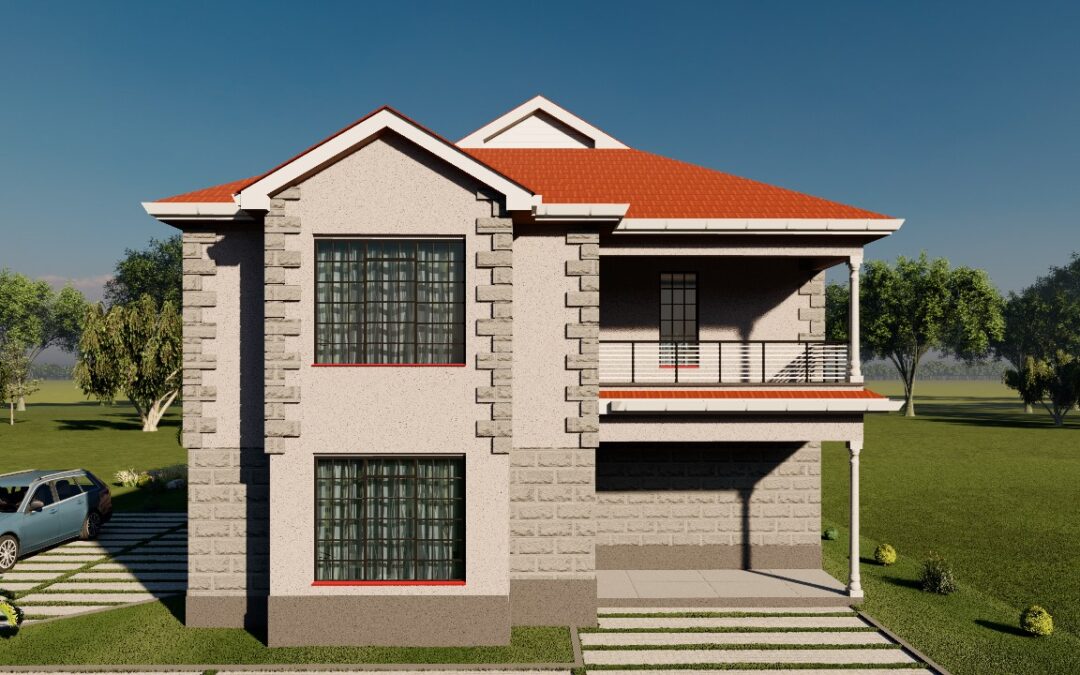For many Kenyans, owning a home is a lifelong dream. With rising property prices and the increasing cost of living, paying for a house upfront is out of reach for most people. That’s where mortgages come in — allowing individuals and families to purchase property and repay over time.
But before applying, it’s important to understand the types of mortgages available in Kenya and how to choose the one that best suits your financial situation and long-term goals.
In this guide, we break down the main types of home loans in the Kenyan market, and provide practical tips to help you make an informed decision.
What Is a Mortgage?
A mortgage is a loan used to purchase property, where the property itself serves as security (collateral) for the loan. The lender holds an interest in the property until the loan is fully repaid. Mortgages in Kenya are typically long-term loans, with repayment periods ranging from 5 to 25 years.
Common Types of Mortgages in Kenya
1. Fixed-Rate Mortgage
With a fixed-rate mortgage, the interest rate remains the same throughout the repayment period. This means your monthly installments will not change over time.
Pros:
-
Predictable monthly payments.
-
Protection from interest rate fluctuations.
Cons:
-
May start at a higher rate than variable options.
-
You may miss out if interest rates fall in future.
Best for: Buyers who prefer stability and plan to stay in the property long-term.
2. Variable (Adjustable) Rate Mortgage
Also known as a floating-rate mortgage, the interest rate on this loan varies based on market trends. If the Central Bank Rate (CBR) changes, your mortgage rate may go up or down accordingly.
Pros:
-
Initial rates are usually lower than fixed-rate loans.
-
You could benefit from rate drops.
Cons:
-
Monthly payments can rise unexpectedly.
-
Harder to plan long-term finances.
Best for: Buyers comfortable with some risk and who expect interest rates to fall.
3. Graduated Payment Mortgage
With this structure, your payments start low and increase gradually over time, often every year. This type suits individuals expecting their income to grow steadily, such as young professionals.
Pros:
-
Easier to afford in the early years.
-
Payments grow in line with your income.
Cons:
-
Higher payments in later years may strain your budget.
-
You may pay more interest over the loan term.
Best for: First-time homebuyers early in their careers.
4. Interest-Only Mortgage
In this option, you only pay the interest on the mortgage for an initial period (e.g., the first 5 years). After that, you begin paying both the principal and interest.
Pros:
-
Very low initial monthly payments.
-
Helps with short-term cash flow.
Cons:
-
You don’t reduce the loan balance during the interest-only period.
-
Higher payments later can be challenging.
Best for: Buyers who expect future income increases or plan to refinance or sell before the interest-only period ends.
5. Construction Mortgage (Self-Build Loan)
This mortgage is for those building a house from scratch. The loan is released in phases based on the progress of the construction. Disbursements are usually done after site inspections.
Pros:
-
Tailored for builders rather than buyers.
-
Funds are released as needed, reducing waste.
Cons:
-
Requires close supervision and documentation.
-
Delays in construction can affect disbursement.
Best for: Homeowners building their own houses or developers.
6. Islamic (Shariah-Compliant) Mortgage
This is a non-interest mortgage model offered by Islamic financial institutions. Instead of charging interest, the bank buys the house and sells it back to the buyer at a profit over time (e.g., through a model like Murabaha).
Pros:
-
Complies with Islamic finance principles.
-
Transparent profit structure.
Cons:
-
Limited availability.
-
May come with higher upfront costs.
Best for: Muslim homebuyers seeking Shariah-compliant financing.
7. Buy-to-Let Mortgage
This type is for individuals purchasing property as an investment to rent out, not to live in.
Pros:
-
Rental income can help repay the loan.
-
Builds a property investment portfolio.
Cons:
-
Often requires a larger down payment.
-
Subject to tenant risks and property management responsibilities.
Best for: Investors looking to earn income from property.
Key Factors to Consider When Choosing a Mortgage
1. Your Income and Job Security
Choose a mortgage type and repayment term that fits your monthly income comfortably. Avoid straining your budget with high payments.
2. Interest Rate Type
Decide whether you want a fixed, variable, or hybrid interest rate. Consider your ability to handle rate changes.
3. Loan Term
Shorter loan terms mean higher monthly payments but less total interest paid. Longer terms reduce monthly payments but increase total cost.
4. Deposit Amount
Most lenders in Kenya require a deposit of at least 10% to 20% of the property value. Some mortgages, like buy-to-let, may require more.
5. Fees and Hidden Costs
Check for processing fees, legal charges, insurance costs, and penalties for early repayment or late payments.
6. Lender’s Reputation
Work with trusted lenders like Smart Credit, who offer transparency, flexible terms, and fast processing. Read customer reviews and compare offers before committing.
Mortgage Providers in Kenya
Some of the common providers of mortgages in Kenya include:
-
Commercial banks (e.g., KCB, Co-op Bank, Equity Bank)
-
SACCOs
-
Microfinance banks
-
Mortgage-specific institutions (e.g., Kenya Mortgage Refinance Company)
-
Private finance companies like Smart Credit
Final Thoughts
A mortgage is a powerful tool that can help you achieve your dream of owning a home or investing in property. But it’s also a long-term financial commitment, so it’s crucial to understand your options and make the right choice.
By learning about the different types of mortgages available in Kenya and considering your income, lifestyle, and financial goals, you can select a loan that supports your future rather than straining it.
Need help choosing the right mortgage for your needs? Contact Smart Credit today for expert advice and flexible financing solutions tailored to your goals.

